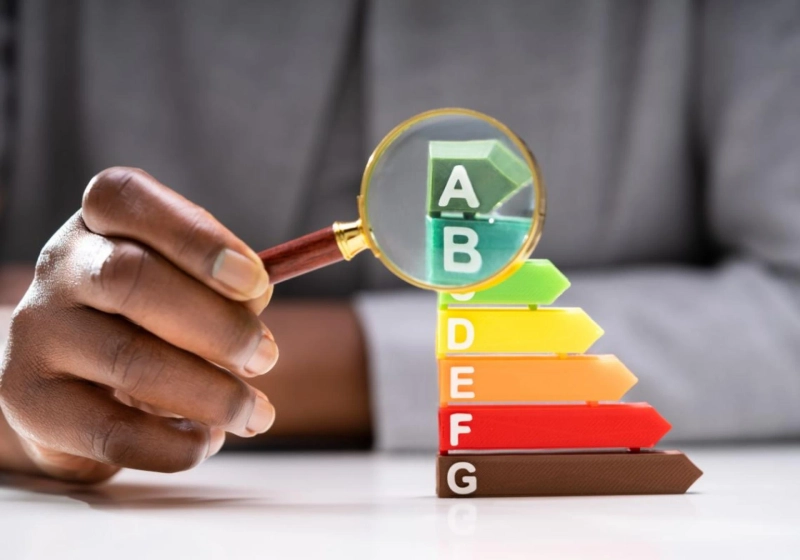Should I audit or not? When you take into account the variety of advantages derived from an energy audit, this question can be easily answered. Making the switch to more energy-efficient solutions might be advantageous for your company.
An energy audit is what?
An energy audit is a comprehensive assessment of your company's current energy efficiency levels and usage patterns, conducted both externally and internally, room by room. To enhance functionality and efficiency while reducing energy consumption and costs, a tailored strategy is formulated. This strategy takes into consideration the collected data, as well as your desired savings goals.
To facilitate this process, energy audit software plays a crucial role. Energy audit software streamlines and optimizes the auditing procedure by employing advanced algorithms and data analysis techniques. It automates data collection from various sources, such as utility bills, equipment specifications, and occupancy patterns. The software then processes this data to identify energy consumption trends, potential areas of inefficiency, and opportunities for optimization.
Key features of energy audit software include:
Data Collection: The software gathers data from multiple sources, including utility bills, sensor networks, and equipment specifications. It centralizes this information for analysis.Visualizations: Energy audit software generates easy-to-understand visualizations, such as graphs and charts, to present energy consumption patterns and trends over time.Simulation Tools: Some software offers simulation capabilities that allow you to model the impact of various efficiency upgrades and changes. This enables you to forecast potential energy savings before implementing any modifications.Recommendations: Based on the data analysis, the software provides specific recommendations for energy-saving measures. These recommendations can range from simple behavioral changes to more complex equipment upgrades.Customized Strategies: The software assists in developing tailored energy-saving strategies that align with your company's goals and budget. It considers factors such as peak usage times, occupancy schedules, and equipment lifecycles.Cost-Benefit Analysis: Energy audit software calculates the potential cost savings and return on investment for each recommended efficiency improvement, helping you make informed decisions.Reporting: The software generates comprehensive reports summarizing audit findings, recommendations, and projected savings. These reports can be shared with stakeholders and used to track progress over time.Integration: Many energy audit software solutions integrate with building management systems, allowing for real-time monitoring and adjustment of energy usage.By incorporating energy audit software into the energy assessment process, your company can efficiently identify areas of energy wastage and implement strategies that align with your financial and sustainability objectives. This technology-driven approach not only enhances energy efficiency but also contributes to reduced operational expenses and a smaller environmental footprint.
How about those advantages?
You can save money with an energy audit.A professional audit is worthwhile because it gives you the chance to identify the best ways to reduce operating costs by making energy-efficient upgrades. Can it save a lot of money? The average business facility wastes 30% of its energy budget, therefore improving efficiency can, on average, yield a $1.50 return on every dollar invested.
Health and safety can be raised with an energy audit.Auditors can find potential health and safety threats including carbon monoxide from incorrectly running or vented combustion equipment, radon leaks, and more by spotting and fixing risky issues, especially in older buildings.
Increased comfort can result from an energy assessment.An environment that is more stable and effectively heated and cooled results from improvements in insulation and air sealing. This better thermal envelope can result in increased comfort, which can increase productivity and lower utility expenses for you.
Energy audits offer security.HVAC Energy audits not only ensure a more secure energy future for everyone, but also safeguard the environment by lowering the pollution caused by fossil fuels. Even something as straightforward as improving lighting efficiency can have a significant impact.
What is the price?
In an effort to promote lower energy consumption and resource conservation, rebates, tax credits, and other incentives can be offered for your energy audit. To find out more about the possibility of a free or discounted energy audit for your firm, get in touch with your local utility company. The website of the U.S. Small Business Administration (SBA) also provides a list of programmes you can use, such as grants and loans to help your company make energy-efficient improvements.
What more should I know?
Detail building information, such as function, floor plans, orientation, copies of old utility bills, an equipment inventory, notes on existing problems, updates you'd like to achieve, and more, are required to ensure a successful audit.


